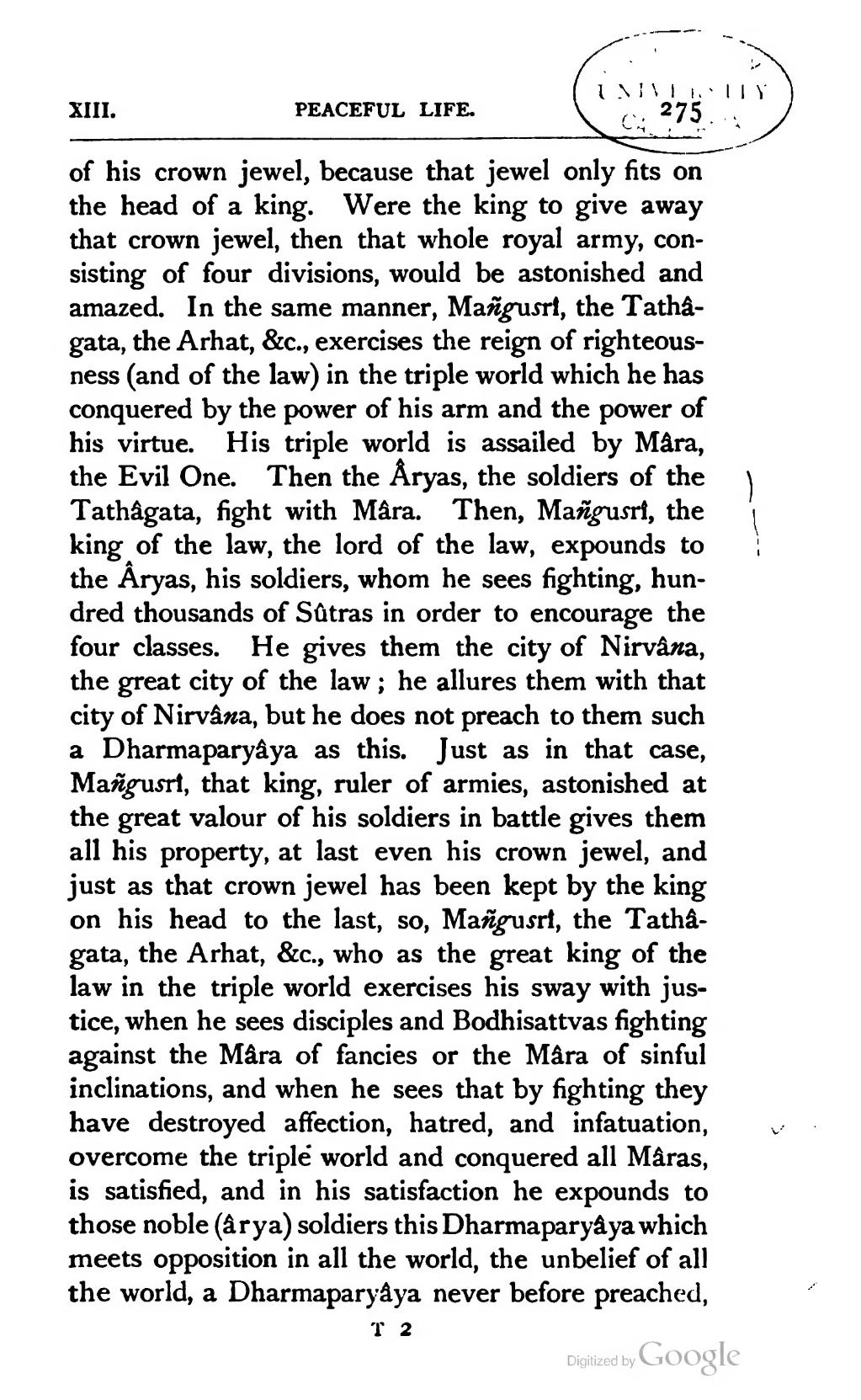of his crown jewel, because that jewel only fits on the head of a king. Were the king to give away that crown jewel, then that whole royal army, consisting of four divisions, would be astonished and amazed. In the same manner, Ma&^uffrt, the Tathdgata, the Arhat, &c., exercises the reign of righteousness (and of the law) in the triple world which he has conquered by the power of his arm and the power of his virtue. His triple world is assailed by M&ra, the Evil One. Then the Aryas, the soldiers of the Tathdgata, fight with Mdra. Then, Ma^fiurt, the king of the law, the lord of the law, expounds to the Aryas, his soldiers, whom he sees fighting, hundred thousands of Sfitras in order to encourage the four classes. He gives them the city of Nirva, the great city of the law; he allures them with that city of Nirva, but he does not preach to them such a Dharmaparydya as this. Just as in that case, Mangusri, that king, ruler of armies, astonished at the great valour of his soldiers in battle gives them all his property, at last even his crown jewel, and just as that crown jewel has been kept by the king on his head to the last, so, MangMsrt, the Tathigata, the Arhat, &c, who as the great king of the
law in the triple world exercises his sway with justice, when he sees disciples and Bodhisattvas fighting against the M4ra of fancies or the M&ra of sinful inclinations, and when he sees that by fighting they have destroyed affection, hatred, and infatuation, overcome the triple" world and conquered all M&ras, is satisfied, and in his satisfaction he expounds to those noble (drya) soldiers this Dharmapary&ya which meets opposition in all the world, the unbelief of all the world, a Dharmaparydya never before preached,
t 2
